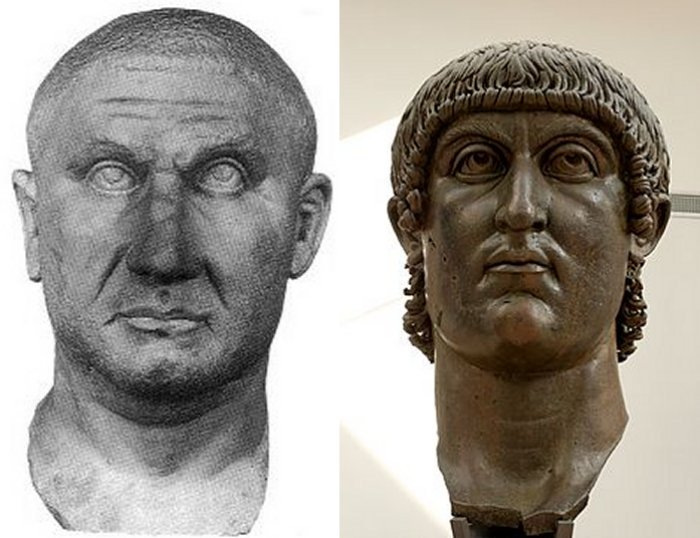On This Day In History: Battle Of Cibalae Was Fought Between Two Roman Emperors – On Oct 8, 314
On October 8, 314, the Battle of Cibalae was fought between the two Roman emperors Constantine I and Licinius.
The site of the battle was Cibalae, (now Vinkovci in eastern Croatia), about 350 kilometers within the territory of Licinius and Emperor Constantine won a decisive victory, despite being outnumbered.

The hostilities were prompted by Constantine’s appointment of his brother-in-law, Bassianus, as his Caesar. Bassianus was discovered to be intriguing against Constantine, perhaps at the prodding of his own brother Senecio, a close associate of Licinius. When Constantine demanded that Licinius hand over Senecio, Licinius refused.
Constantine marched against Licinius, who responded by elevating another associate, Valens. The date of Valens’ elevation as emperor probably occurred after the Battle of Cibalae.
The battle lasted all day.
Following a period of skirmishing and missile fire at a distance the main bodies of the armies met in close combat. A fierce hand-to-hand fight ensued. This battle of attrition was ended, late in the day, when Constantine personally led a cavalry charge from the right wing of his army. The charge was decisive, Licinius’ ranks were broken.
As many as 20,000 of Licinius’ soldiers were killed in the hard-fought battle. The surviving cavalry of the defeated army accompanied Licinius when he fled the battlefield under the cover of darkness.
After the battle, Licinius was forced to flee. He gathered his family and his treasury and left for Thrace. Peace negotiations were initiated, but they broke down.
A further battle was then fought, the Battle of Mardia, which proved to be indecisive. Heavy losses were suffered by both sides.
Finally, a treaty highly-favorable to Constantine was subsequently negotiated; this included the surrendering by Licinius of the greater part of the Balkan Peninsula and the elevation of Constantine’s sons, Crispus (then about 14) and Constantine (who was only an infant), with Licinius’ young son (Licinius the Younger), to the rank of Caesar.



 Creators of mankind
Creators of mankind Description of “Tall white aliens”
Description of “Tall white aliens” Where they came from?
Where they came from? About hostile civilizations
About hostile civilizations The war for the Earth
The war for the Earth “Tall white aliens” about eternal life
“Tall white aliens” about eternal life Video: “Nordic aliens”
Video: “Nordic aliens” Aliens
Aliens Alien encounters
Alien encounters The aliens base
The aliens base UFO
UFO Technology UFO
Technology UFO Underground civilization
Underground civilization Ancient alien artifacts
Ancient alien artifacts Military and UFO
Military and UFO Mysteries and hypotheses
Mysteries and hypotheses Scientific facts
Scientific facts


















